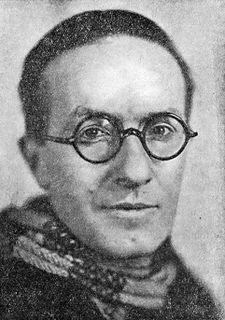A Quote by Rachel Lambert Mellon
One of the first gardens I did outside the family was for the designer Hattie Carnegie. I was 23 then, and I went to her salon, but could not afford any of her dresses myself, though I loved them. Miss Carnegie suggested I do a garden in exchange for a coat and dress, and so I designed and planted a garden for her.
Related Quotes
so my grandmother was not without humanity. and if she wore cocktail dresses when she labored in the garden, they were cocktail dresses she no longer intended to wear to cocktail parties. even in her rose garden she did not want to appear underdressed. if the dresses got too dirty from gardening, she threw them out. when my mother suggested to her that she might have them cleaned, my grandmother said, "what? and have those people at the cleaners what i was doing in a dress to make it that dirty?" from my grandmother i learned that logic is relative.
Was it not most meet that a woman should first see the risen Saviour? She was first in the transgression; let her be first in the justification. In yon garden she was first to work our wo; let her in that other garden be the first to see Him who works our weal. She takes first the apple of that bitter tree which brings us all our sorrow; let her be the first to see the Mighty Gardener, who has planted a tree which brings forth fruit unto everlasting life.
I miss my father. I miss my grandfather. I miss my home. And I miss my mother. But the thing is, for almost three years, I managed not to miss any of them. And then I spent that one day with that one girl. One day ... It was like she gave me her whole self, and somehow as a result, I gave her more of myself than I even realized there was to give. But then she was gone. And only after I'd been filled up by her, by that day, did I understand how empty I really was.
Pianists of extraordinary talent, such as Christina Petrowska,spend a large part of their early lives perfecting technique…Miss Petrowska,a Canadian with a phenomenal ability to play the most difficult music cleanly, gave a demonstration of her achievements at Carnegie Recital Hall. A product of the Juilliard School who studied with Karlheinz Stockhausen and Gyorgy Ligeti in Europe, Miss Petrowska built most of her program around fiercely difficult contemporary works. She has fingers that work like chrome-plated pistons, and her high-seated position let her bring pulverizing power to bear.
The adolescent does not develop her identity and individuality by moving outside her family. She is not triggered by some magic unconscious dynamic whereby she rejects her family in favour of her peers or of a larger society.... She continues to develop in relation to her parents. Her mother continues to have more influence over her than either her father or her friends.
She had sacrificed her childhood to save her brothers; she loved her family above all else, and her spirits yearned to return home once more, to the wild forest and the land of mystic tales and ancient spirits whence he had taken her. That was the place of her heart, and if he loved her, he must let her go.
He could not forgive her, but he could not be unfeeling. Though condemning her for the past, and considering it with high and unjust resentment, though perfectly careless of her, and though becoming attached to another, still he could not see her suffer, without the desire of giving her relief. It was a remainder of former sentiment; it was an impulse of pure, though unacknowledged friendship; it was a proof of his own warm and amiable heart.
I think that one morning, the Papess woke in her tower, and her blankets were so warm, and the sun was so golden, she could not bear it. I think she woke, and dressed, and washed her face in cold water, and rubbed her shaven head. I think she walked among her sisters, and for the first time saw that they were so beautiful, and she loved them. I think she woke up one morning of all her mornings, and found that her heart was as white as a silkworm, and the sun was clear as glass on her brow, and she believed then that she could live, and hold peace in her hand like a pearl.
Drifting snowflakes brushed her face as light as lover’s kisses, and melted on her cheeks. At the center of the garden, beside the statue of the weeping woman that lay broken and half-buried on the ground, she turned her face up to the sky and closed her eyes. She could feel the snow on her lashes, taste it on her lips. It was the taste of Winterfell. The taste of innocence. The taste of dreams.
I sometimes used to ask myself, what on earth did I love her for? Maybe fore the warm hazel iris of her fluffy eyes, or for the natural side-wave of her brown hair, done anyhow, or again for that movement of her plump shoulders. But, probably the truth was that I loved her because she loved me. To her I was the ideal man: brains, pluck. And there was none dressed better. I remember once, when I first put on that new dinner jacket, with the vast trousers, she clapsed her hands, sank down on a chair and murmured: 'Oh, Hermann...." It was ravishment bordering upon something like heavenly woe.



































